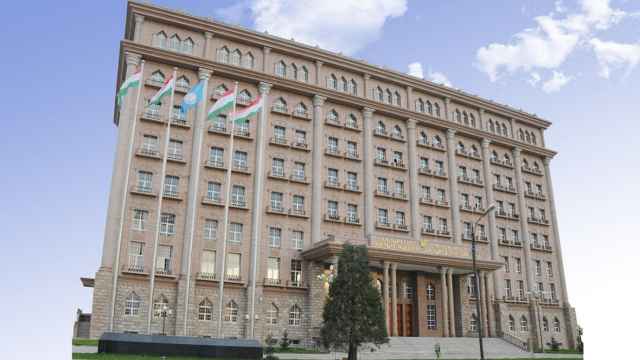Space officials say, despite claims a failed Mars probe crashed in the Pacific Ocean near Chile, they still have no firm information where it actually plummeted to Earth.
The unmanned Fobos-Grunt probe fell Sunday after being stuck in Earth's orbit for two months.
The $170 million craft was one of the heaviest and most toxic pieces of space junk ever to crash to Earth, but space officials and experts said the risks posed by its crash were minimal because the toxic rocket fuel on board and most of the craft's structure would burn up in the atmosphere high above the ground anyway.
News agencies had cited Defense Ministry spokesman Alexei Zolotukhin as saying Sunday that fragments of the craft fell in the Pacific Ocean off Chile's coast. But Zolotukhin said Monday that his estimate was based on calculations, and no witness reports had been received.
The deputy head of Russia's space agency, Anatoly Shilov, told state news channel Vesti that agency data assumed the craft broke up somewhere over Brazil.
A statement Monday from the Federal Space Agency cited the reported Defense Ministry assessment, but gave no further information, noting "the lack of means of visual and other monitoring" in the region.
The Fobos-Grunt probe was designed to travel to one of Mars' twin moons, Fobos, land on it, collect soil samples and fly them back to Earth in 2014 in one of the most daunting interplanetary missions ever. It got stranded in Earth's orbit after its Nov. 9 launch, and efforts by Russian and European Space Agency experts to bring it back to life failed.
The probe weighed 13.5 metric tons, including a load of 11 metric tons of highly toxic rocket fuel intended for the long journey to the Martian moon of Phobos that was left unused as the probe got stranded in orbit around Earth.
The space agency had said all the fuel would burn up on re-entry.
Fobos-Grunt was Russia's most expensive and the most ambitious space mission since Soviet times. Its mission to the crater-dented, potato-shaped Martian moon was to give scientists precious materials that could shed more light on the genesis of the solar system.
A Message from The Moscow Times:
Dear readers,
We are facing unprecedented challenges. Russia's Prosecutor General's Office has designated The Moscow Times as an "undesirable" organization, criminalizing our work and putting our staff at risk of prosecution. This follows our earlier unjust labeling as a "foreign agent."
These actions are direct attempts to silence independent journalism in Russia. The authorities claim our work "discredits the decisions of the Russian leadership." We see things differently: we strive to provide accurate, unbiased reporting on Russia.
We, the journalists of The Moscow Times, refuse to be silenced. But to continue our work, we need your help.
Your support, no matter how small, makes a world of difference. If you can, please support us monthly starting from just $2. It's quick to set up, and every contribution makes a significant impact.
By supporting The Moscow Times, you're defending open, independent journalism in the face of repression. Thank you for standing with us.
Remind me later.





